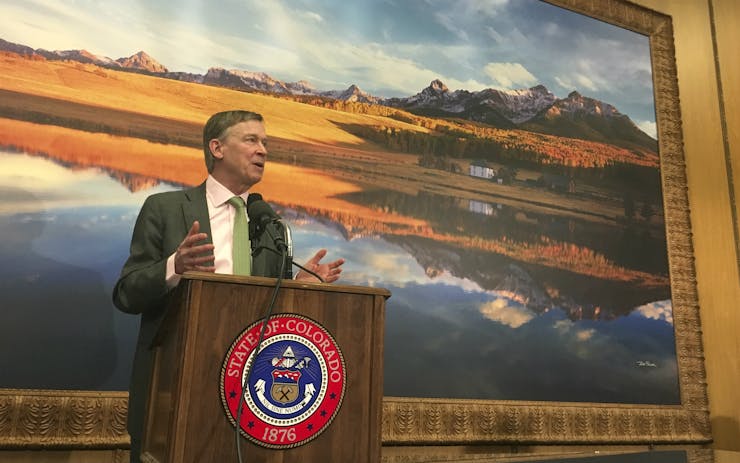After a hard-fought effort by veterans groups and patient advocates, Colorado has added post-traumatic stress disorder (PTSD) as a qualifying condition for medical cannabis. Gov. John Hickenlooper on Monday added his signature to SB 17, easing access to cannabis for individuals suffering from PTSD and allowing them the opportunity to talk openly with their doctors about using cannabis as part of a treatment plan.
Colorado, until this point the only state to have denied a request to add PTSD to its list of qualifying conditions, joins 19 other states—as well as Guam, Puerto Rico, and Washington, DC—that allow patients with PTSD access to medical cannabis. The change is expected to take effect in coming weeks, after state forms are updated to reflect the change.
The push to add PTSD to the list had run into numerous setbacks in recent years, most recently in July 2015, when the state Board of Health denied a petition in the face of boos and jeers from supporters. The board, which has not added a qualifying condition since the state adopted its medical marijuana law, said there wasn’t sufficient scientific evidence to justify the change.
“While I get the humanity and certainly the cases and the anecdotal experience,” board panelist Christopher Stanley said in 2015, after hearing proponents speak. “I don’t see that the evidence really allows us to be able to add this, according to our particular jurisdiction.” The proposal failed, 6–2.
The rejection led proponents to file a lawsuit against the state, which is currently before a state appellate court. It also encouraged them to bring a bill to to the Capitol, which earned the support of state lawmakers. The Legislature passed the bill in April, and it’s since been sitting on Hickenlooper’s desk.
The bill will allow individuals suffering with PTSD to participate in the state’s medical marijuana program, allowing them access to a wider variety of medically focused products than generally found in adult-use stores. It will also free patients with PTSD to openly discuss with their physicians how cannabis might fit into a more comprehensive treatment plan.
Hoban Law Group, which handled the lawsuit pro bono on behalf of patients such as Army veteran Matthew Kahl, cheered the governor’s decision to sign the bill into law as “the final step of what has been a long journey to justice.”
“We at Hoban Law Group extend our deep gratitude to Senator [Irene] Aguilar, Representative [Jonathan] Singer and the other members of the Colorado General Assembly for making medical marijuana available to PTSD survivors in Colorado,” said Adam Foster, the lead attorney on the case. “It has been an honor to work hand in hand with veterans and other stakeholders to shepherd this critically important bill through the legislative process.”





